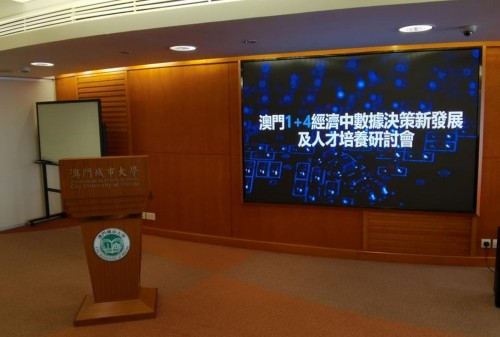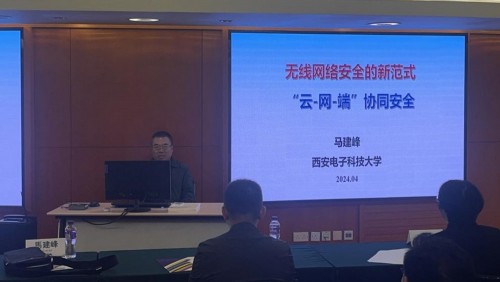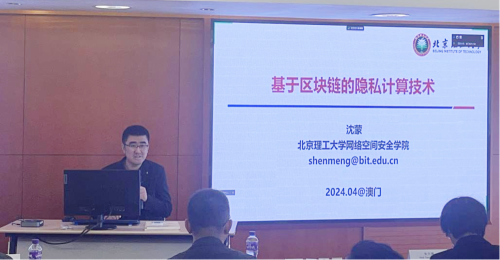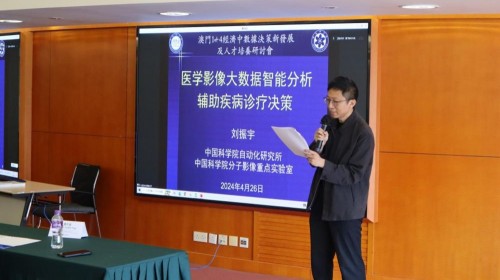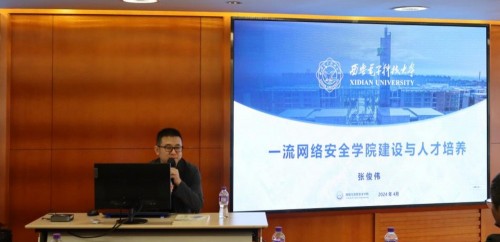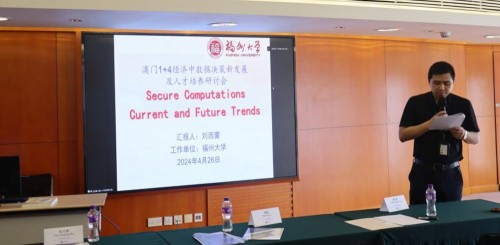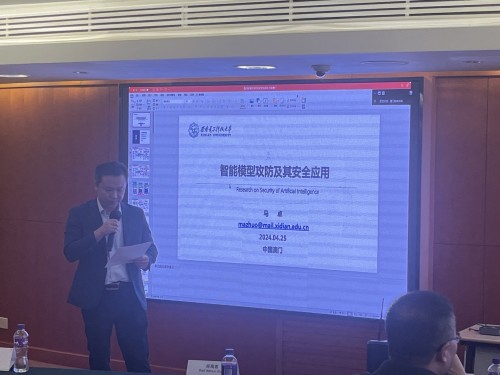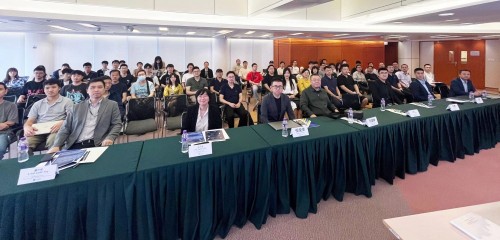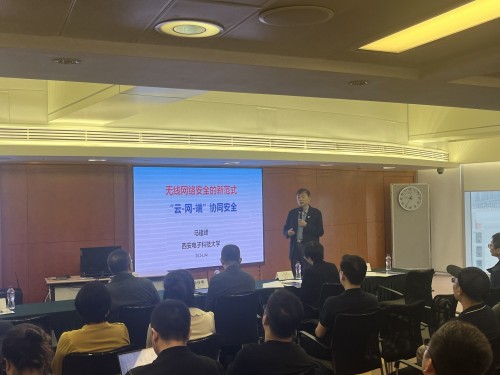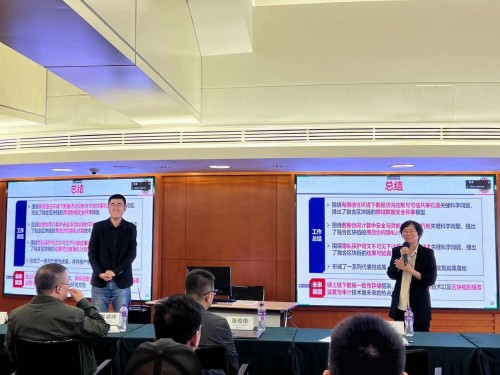The Faculty of Data Science at City University of Macau held a two-day academic lecture on April 25-26, 2024, with the theme of "New Developments in Data Decision Making and Talent Cultivation in Macau's 1+4 Economy".
.jpg)
This seminar was held at CLG201B Cultural Center of City University of Macau, bringing together renowned scholars and experts from multiple universities and research institutions. The visiting scholars include Wanlei Zhou, Vice President of City University of Macau, Jianfeng Ma, Professor of Xidian University, Meng Shen, Professor of Beijing Institute of Technology, Zhuo Ma, Professor of Xidian University, Zhenyu Liu, CASIA, Professor Junwei Zhang, Xidian University, Ximeng Liu, Researcher of Fuzhou University, Tianqing Zhu, Vice Dean of Faculty of Data Science of City University of Macau, Wenjian Liu, Vice Dean of Faculty of Data Science of City University of Macau, Zuobin Ying, Programme Coordinator of Faculty of Data Science of City University of Macau, Jia Gu, Professor of Faculty of Data Science of City University of Macau, and Xin Sun, Professor of Faculty of Data Science of City University of Macau.
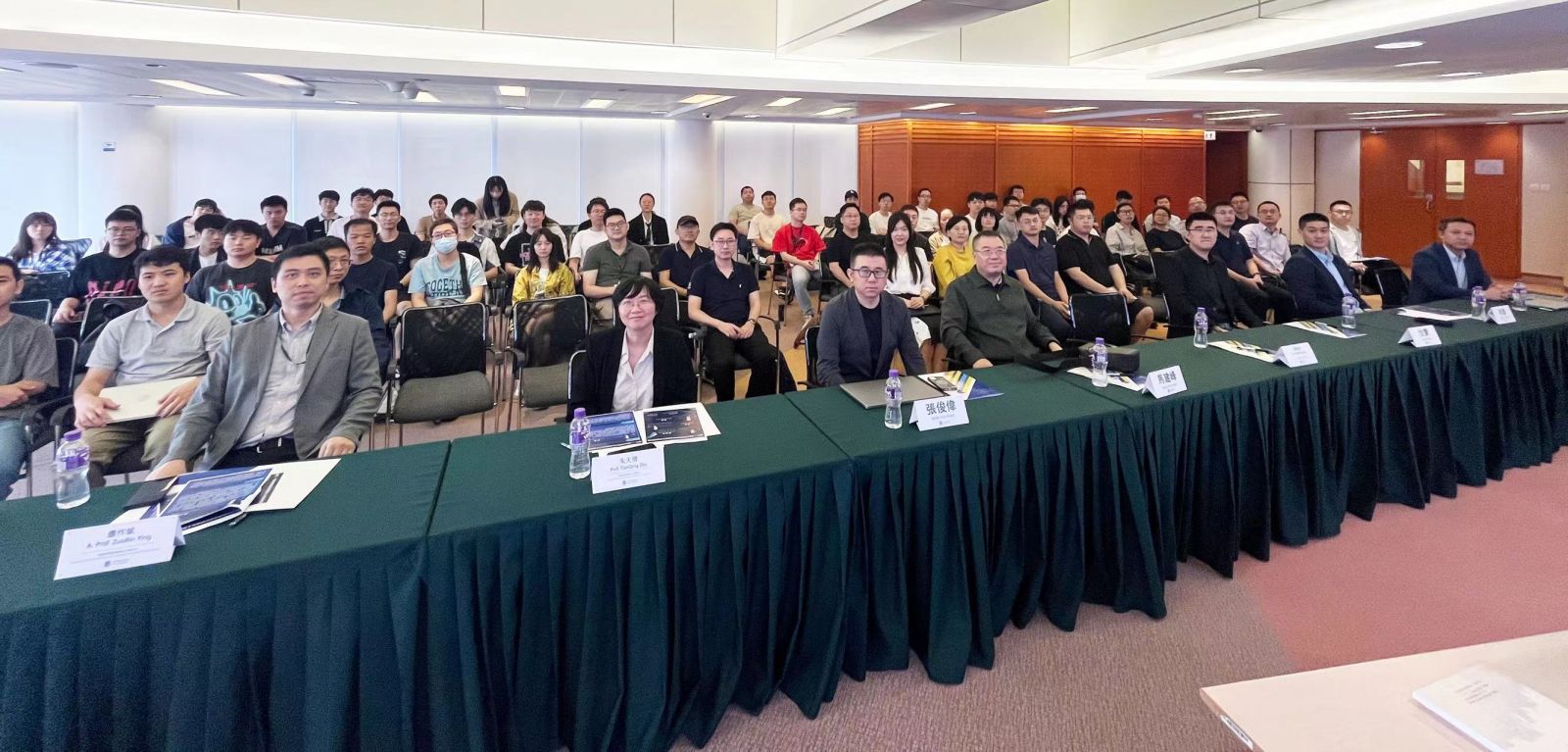
On the first day of the conference, Wanlei Zhou, Vice President of the City University of Macau, opened the seminar with a speech full of expectations and prospects for the future. Subsequently, Professor Jianfeng Ma from Xidian University, Professor Meng Shen from Beijing Institute of Technology, and Professor Zhuo Ma from Xidian University gave keynote speeches on their research directions.
Professor Jianfeng Ma emphasized the new paradigm of wireless network security: "cloud network end" collaborative security. He proposed the establishment of a security mechanism with the goal of ensuring the security of wireless network information services and conducted research around "secure computing and secure communication", forming an emerging research paradigm for wireless network security.
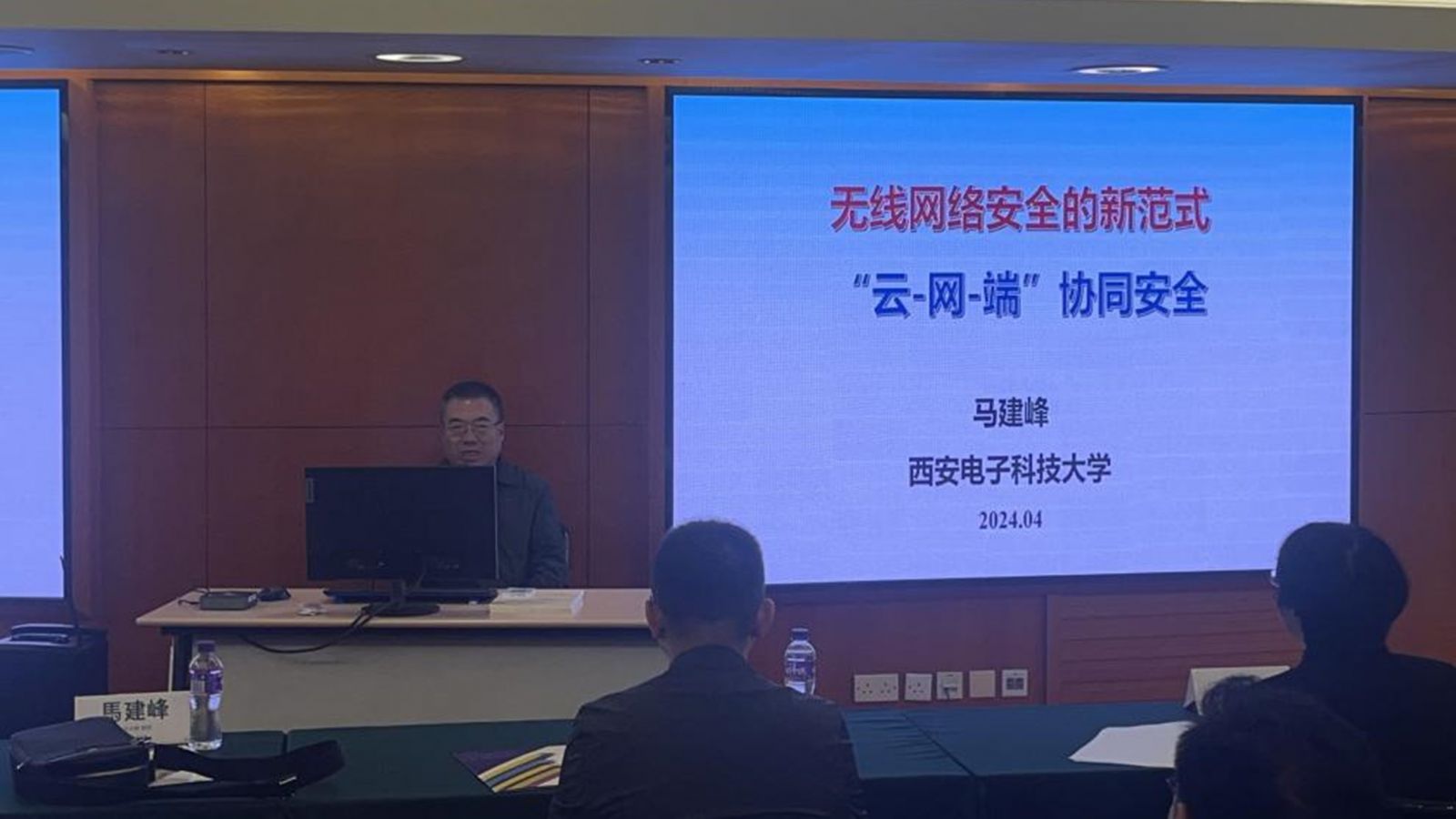
Professor Meng Shen proposed a privacy computing technology based on blockchain and focused on key scientific issues such as data access control and trusted sharing in a limited trust environment, security and efficiency balance in data collaborative computing, and verification of computation results under privacy protection and plaintext invisibility. He proposed relevant technologies that integrate blockchain and achieved a series of representative results and carried out industry university research cooperation to achieve the implementation of the results.
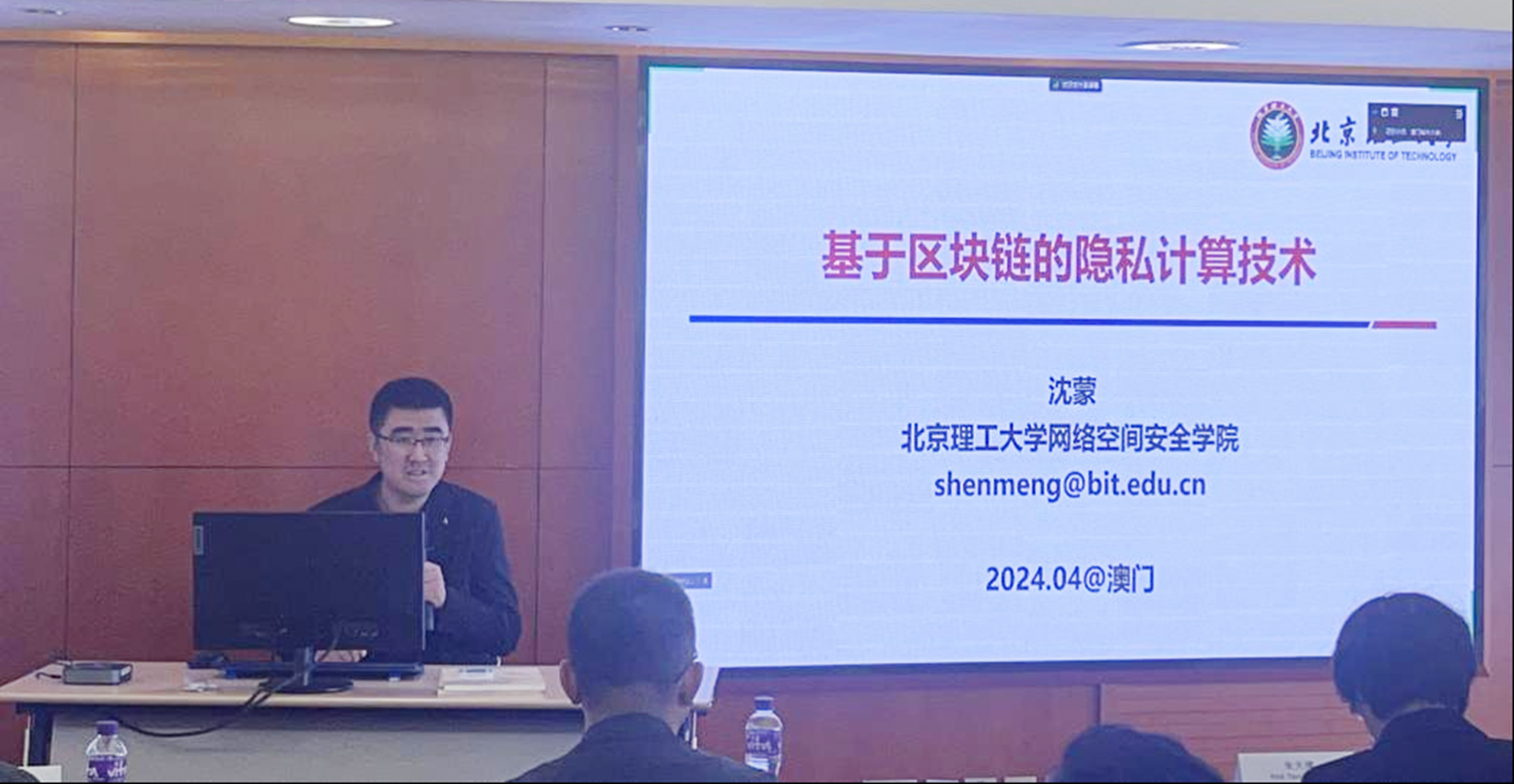
Professor Zhuo Ma focused on explaining the attack and defense of intelligent models and their security applications, emphasizing the attention to the security threats of artificial intelligence model processes, and introducing related research on model poisoning defense and model theft defense.
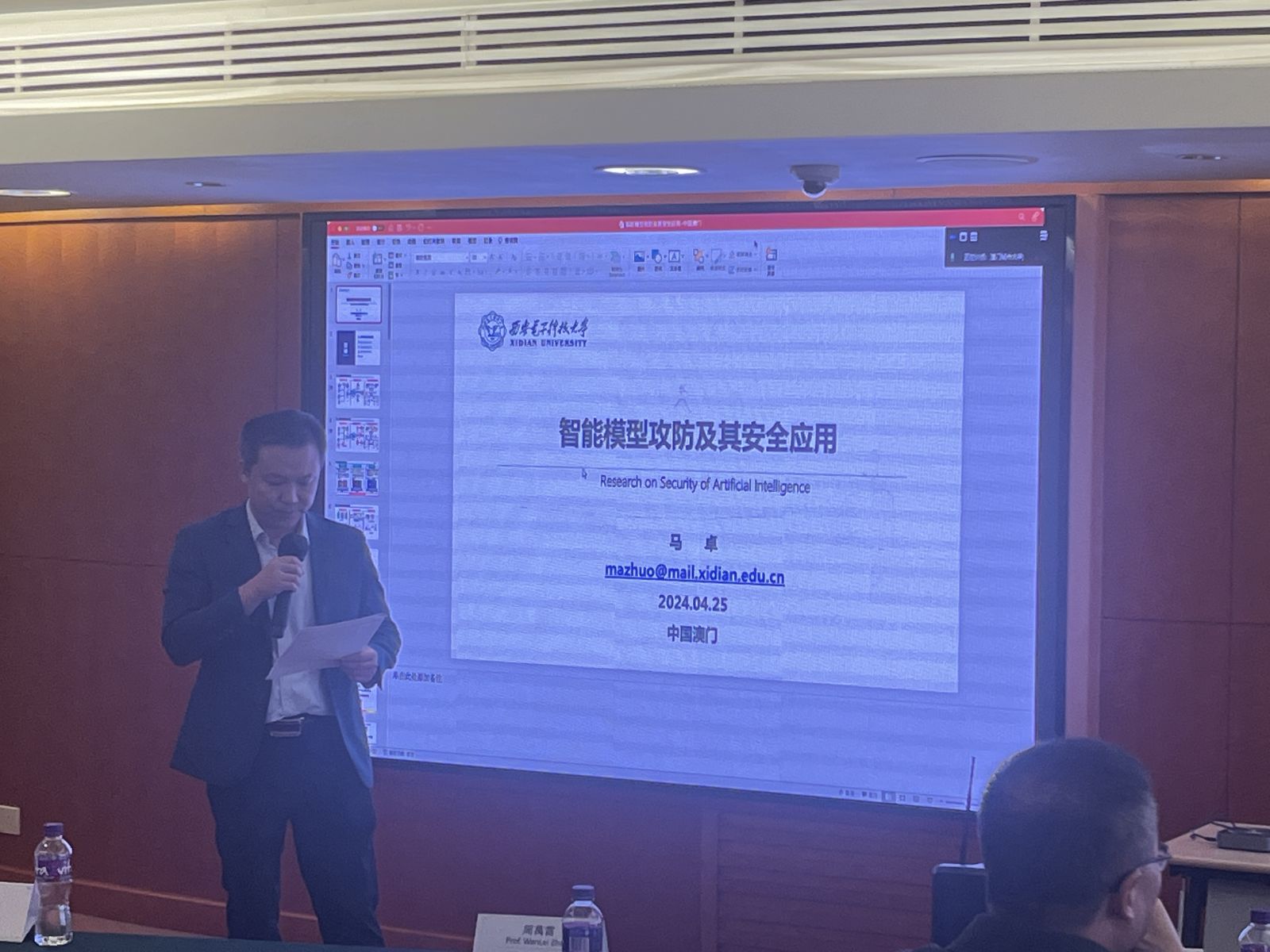
On the second day of the meeting, Liu Zhenyu from CASIA, Professor Zhang Junwei from Xidian University and researcher Liu Simon from Fuzhou University delivered speeches respectively.
Researcher Zhenyu Liu proposed the research direction of intelligent analysis of medical imaging big data to assist disease diagnosis and treatment decision-making, shared the application achievements in intraoperative prediction of lymph node metastasis and hepatitis B fibrosis diagnosis, and took Radiomics of image pathology fusion as the focus of future research.
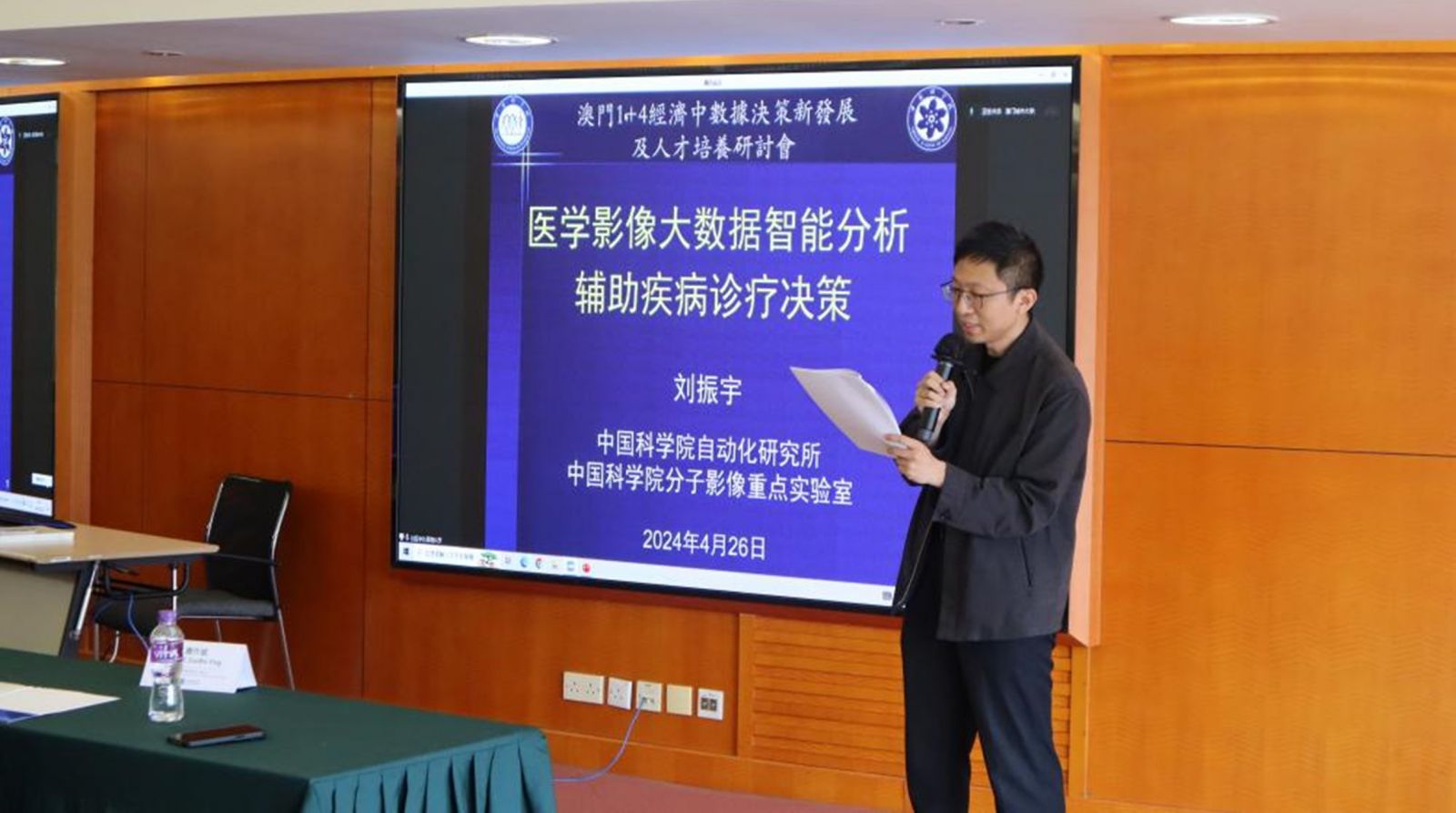
Professor Junwei Zhang discussed the importance of first-class network security construction and talent cultivation, conducted in-depth research on the construction and talent cultivation of network and information security, and provided valuable references for the development direction of the discipline.
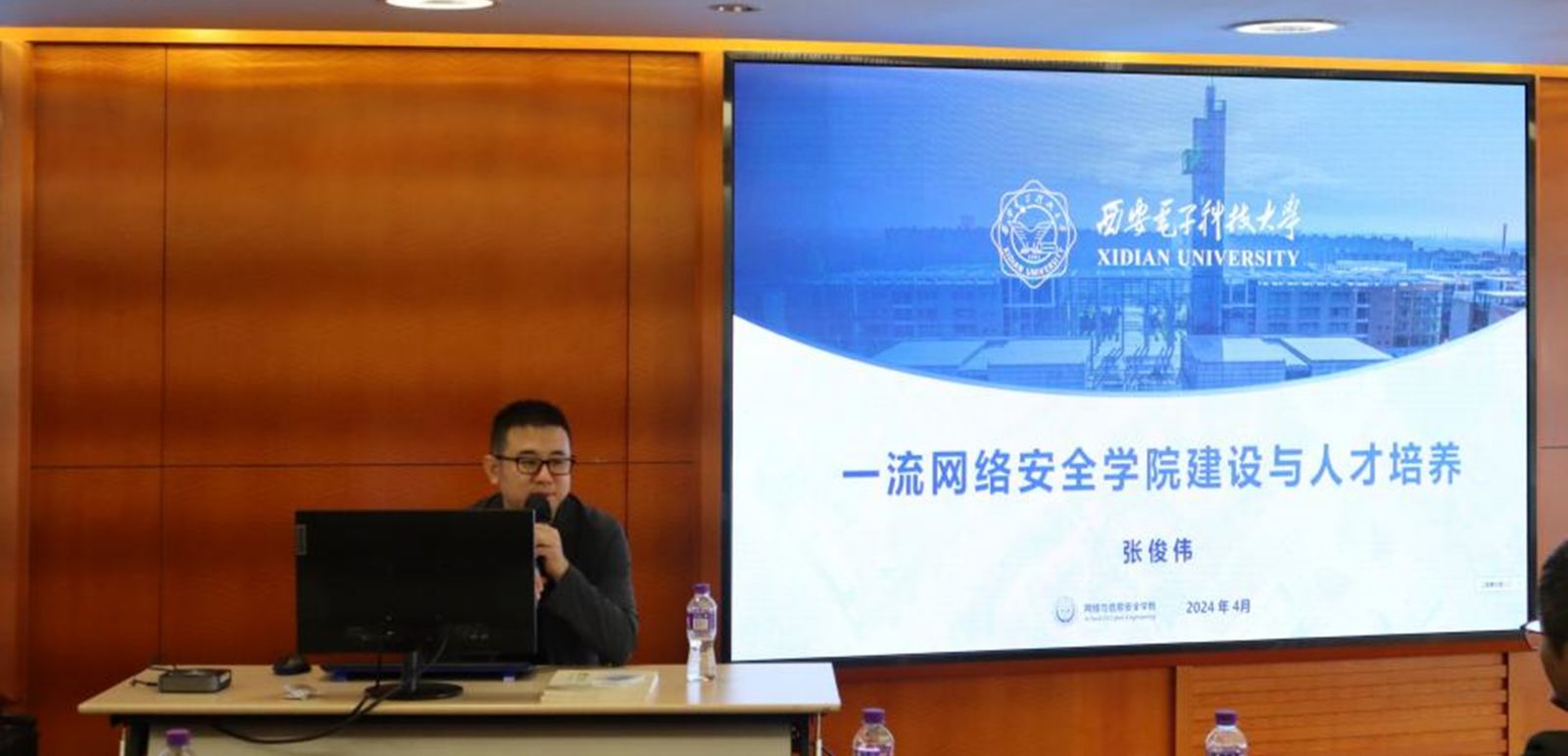
Researcher Ximeng Liu introduced the research achievements in the theory and application of dense state computing, including secure integer/rational/floating-point computing, cross domain secure computing, and computation based on secret sharing. These studies are of great significance for promoting new developments in data decision-making and talent cultivation.
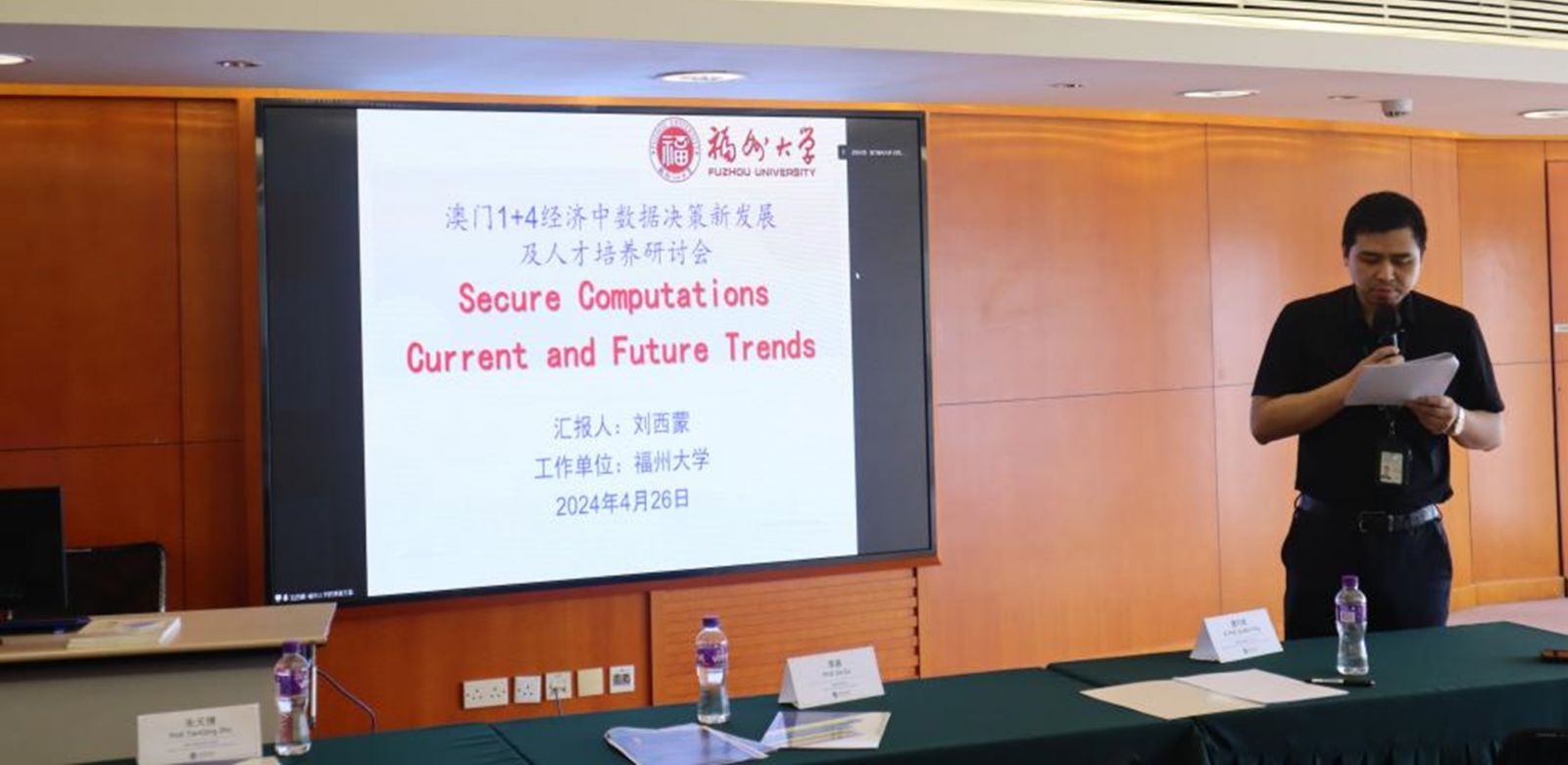
During the seminar, scholars and experts actively participated in discussions and exchanges. They conducted in-depth discussions on the latest developments, technological applications, and challenges in data decision-making, and shared their respective research results and experiences. The attendees also discussed how to cultivate and attract more talents to meet the needs of the data decision-making field.
This seminar provides a platform for communication and collaboration between academia and industry, promoting the progress of academic research and the advancement of practical applications. Participants expressed that this seminar has a positive role in promoting the development of data decision-making and talent cultivation in Macau's 1+4 economy.
City University of Macau will continue to promote research and talent cultivation in the field of data decision-making, providing more support and contribution to the development and innovation of Macau's economy.

